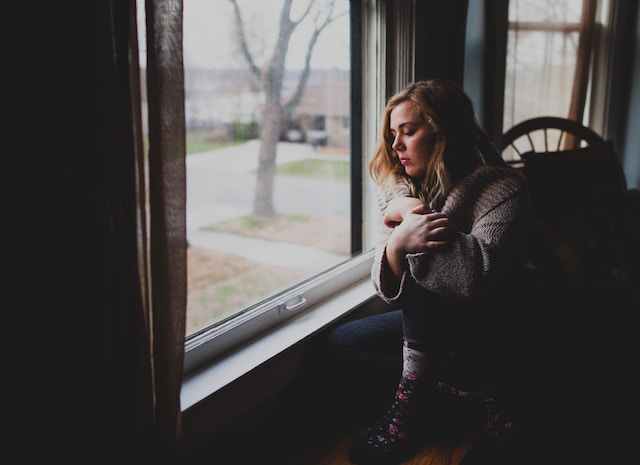
I have not been a good friend to myself.
Living with chronic illness for the past few years has hardened me. I’ve been so repulsed by my own condition and everything it entails that I feel like a piece of my humanity has been taken away from me. It’s a distinct kind of suffering to live with this illness, and it lends itself to all sorts of psychological strangeness.
I have learned to hate myself by necessity. From the severe migraines, to the staggering fatigue, to the paralysis that quivers up and down my face—it has come to feel as though my body is an enemy. This feeling of always working against my own body has brought out an inverted bitterness in me—a hatred toward my own being.
It seemed like I have needed to feel this way to push myself to do things, but of course, this is just an illusion.
I became distrustful of my own spirit because my illness felt like an insult from God. Imagine living like a prisoner in your own body, being around other young people who are enjoying the fruits of their well-being who have no understanding of what you’re going through. This feeling is the source of my self-hatred.
Life is hard enough, right?
I’m realizing that much of the quality of our lives has to do with our relationship with ourselves. To be rightly related to oneself is to be rightly related to the world, and it is this quality of relationship that makes up a healthy human being.
This is what it means to be a friend to oneself.
This is not an easy thing to be; most of us are terrible friends to ourselves without even knowing it.
We develop bad habits of mind that work against our deeper, more heartfelt desires.
These habits came into being as self-defense mechanisms—implemented to protect us from a particular kind of pain. When these inner-impulses no longer serve their purpose, they become burdens on our psyche.
The problem is that we have a hard time knowing when these habits no longer serve their purpose. We identify with them in some strange way, and they become a part of who we are. This is what it means to become pathological, and once we get to this point it becomes difficult to admit where we are wrong because it means letting a part of ourselves die.
I have become pathological over the past couple years as a way to protect my soul from the inner pain that has been brought up by this illness. It has not worked, as I have only experienced more and more pain as a result. Now it’s time to make some changes.
I thought that if I just put my head down and barreled through that somehow I would come out on top—but the pain I experienced as a result of this mindset just worked to further justify my behavior because I had learned to identify with that pain. I took pride in my suffering, and took it as a personal offense if someone insinuated that I didn’t need to suffer in that way.
I felt like a monster.
I have not been a friend to myself, and that’s what needs to change if I am going to make it through this illness and live the life I have always wanted to live.
As it stands now, being a friend to myself means truly looking at myself and actively acknowledging how I have been living wrong. I have a long way to go, and much healing to do, but just being able to accept where I am at right now feels like a good start.
I want to transform my suffering into love, and being a friend to myself is a vital aspect of achieving this.
~
~
~
Author: Samuel Kronen
Image: Aidan Meyer / Unsplash
Editor: Danielle Beutell
Copy Editor: Lieselle Davidson
Social Editor: Callie Rushton







Read 0 comments and reply